If you're a dedicated beauty enthusiast, you're most likely familiar with exfoliation as a fundamental yet, essential part of skincare. This required beauty method aims to remove dead skin cells from the body and reveal a new and beautiful surface.
However, some individuals have specific misconceptions about this beauty technique, especially when they hear chemical exfoliation as one way to remove dead skin from the surface.
This post will highlight and debunk some of the most popular myths surrounding exfoliation and end the misconceptions once and for all. Additionally, these debunked myths may also answer some questions and fear you may have about the method.
Let's begin!
Myth 1: Only Exfoliate When you Have Dry Skin
One common myth is that exfoliation is detrimental to flaky and dry skin as the chemical may cause blisters or destroy the layers further by peeling off the seemingly dead skin. However, this assertion is untrue as Exfoliants exist that are compatible with dry skins and cause zero harm.
In other words, you don't need to have perfect skin to enjoy the benefits of exfoliation, as the process can also protect the skin from multiple issues. One such case includes acne as the exfoliant dissolved the dead skin, unclogs pores, and clears off the surface to reveal the glowing character.
If you have dry skin or other related issues, consider using chemical Exfoliants once a week as they are milder on sensitive skin than physical Exfoliants.
Myth 2: Exfoliation is Bad for Sensitive Skins
Another common misconception is that people with sensitive skins should avoid using any Exfoliant as it may further degrade the tissue and ruin the surface. However, this assertion is wildly untrue as chemical exfoliants are designed to be gentle on various skin types, ensuring the surface is rid of dead cells and stays fresh.
One common ingredient in chemical exfoliants that's mild on most skin types is Lactic acid, which makes people with easily irritated skin enjoy the benefits of exfoliation with no adverse effect.
If you possess sensitive skin, try using chemical exfoliants that contain Lactic acid once or twice a week before building regular usage.
Myth 3: Only Exfoliate with Granular Exfoliators
As previously mentioned, there are two significant types of exfoliation, which are physical and chemical. Physical exfoliation involves using exfoliants that possess grainy or mildly sharp surfaces like body scrubs and sponges.
On the other hand, chemical exfoliants use chemicals like acids and enzymes to weaken the bond on dead skin on fresh ones, making it easy to wash them off.
Unfortunately, people consider chemical exfoliation primarily ineffective because it takes a longer time to work, unlike instant physical exfoliation. However, this perception is incorrect as the only drawback of chemical exfoliation is the time it takes to perform its task; other than that, it is sufficient to keep the skin flawless.
Ultimately, physical and chemical exfoliation is excellent at beautifying the skin and encouraging cell turnover with no adverse effect when applied correctly.
Myth 4: You Should only Exfoliate at Night
Most people believe that exfoliation works best at night as it prevents a day's worth of dirt, oil, and makeup from settling on the skin while they fall asleep. While exfoliation is effective at night, it is equally effective during the day, and the time for employing the technique depends on your preference of beauty routine.
People often use the nighttime to apply other beauty products that nourish the face with nutrients as they sleep. Additionally, exfoliating during the day is more practical if you're applying potentially irritating compounds on your skin like retinol, which feels uncomfortable when overexposed to the sun.
Nevertheless, exfoliating at night or during the day is a personal preference as Exfoliants are not limited by the time.
Myth 5: Exfoliation Eliminated the Skin's Natural Moisture
This myth is partially true as exfoliation does reduce the amount of moisture and oil on the skin; however, the same can be said about bathing and washing the skin as they also rid it of water.
Naturally, bathing and exfoliation should be accompanied by a moisturizer, as washing the skin and ridding it of dead cells makes it feel dry and tight. Additionally, if your skin feels dry or flaky since you begin exfoliating, you're probably over-exfoliating and ridding the skin of moisture too quickly.
Therefore, give your skin a break from exfoliation or find Exfoliants that double as moisturizers since they remove the dead skin and include moisture during the process.
Myth 6: Body Exfoliators can be Used on the face
This misconception is inaccurate and detrimental to the skin as different parts of the body possess different textures and hardness that fit other chemicals. The skin around the face is more sensitive and fragile than the ones in the buttocks or arms. Using the same Exfoliants on the cheeks or sound of the eyes is guaranteed to damage or irritate the surface.
Therefore, avoid using the same scrub for your body on the face, and purchase another product that best suits your face with no negative impact.
Myth 7: Your Scalp Doesn't Need exfoliation
Thinking the scalp doesn't need exfoliation is understandable as few beauty products are dedicated to the head; nevertheless, the scalp is made of skin. Exfoliating it can encourage hair growth by removing dead skin and grime that block the follicles.
Like exfoliants for the face and body, you can choose between physical or chemical exfoliation to rid the head of dead cells. Ensure to massage the surface with your fingertips instead of the fingernails to avoid scratching yourself accidentally.
On the other hand, if you have a sensitive scalp, exfoliate only once a week or every two weeks, so you don't upset the skin's pH and produce dandruff. However, if your scalp isn't overly sensitive, proceed to use scalp Serums around three or four times a week.
Myth 8: Physical Exfoliation is Bad
This misconception isn't surprising as the idea of having a sharp substance tear off your skin surface can be frightening. However, the abrasive particles in scrubs are explicitly designed to remove the dead and flaky skin on the surface and can't tear off the fresh layer.
However, excessive scrubs and sharp sponges will chase micro-tears on the surface, causing them to lose their elasticity and often cause premature aging. Therefore, follow the instructions and Exfoliate at reasonable times during the week.
Conclusion
While tiger myths are circulating about exfoliation, the ones above are sufficient to quench any fear of doubt about the process. If you come across an outrageous claim about exfoliation, try asking a beauty expert to confirm its authenticity.
Cleanlogic Bath and Body Exfoliating Stretch Cloth – Cleanlogic Body Care



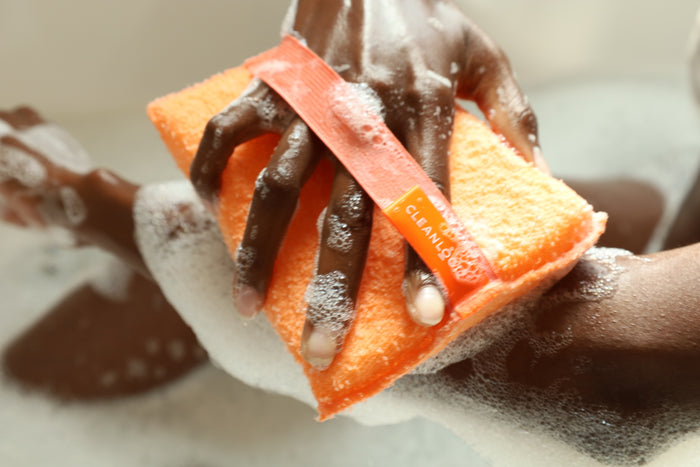

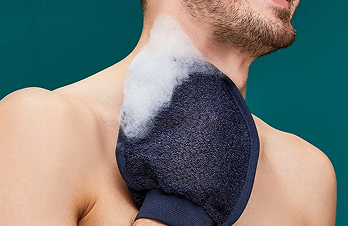


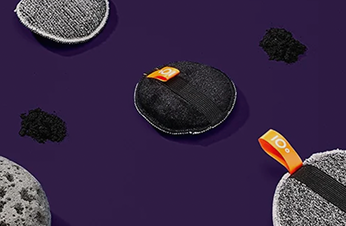
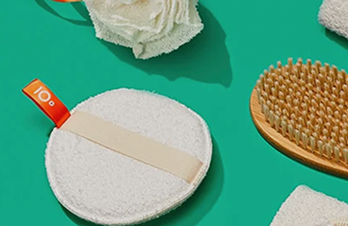
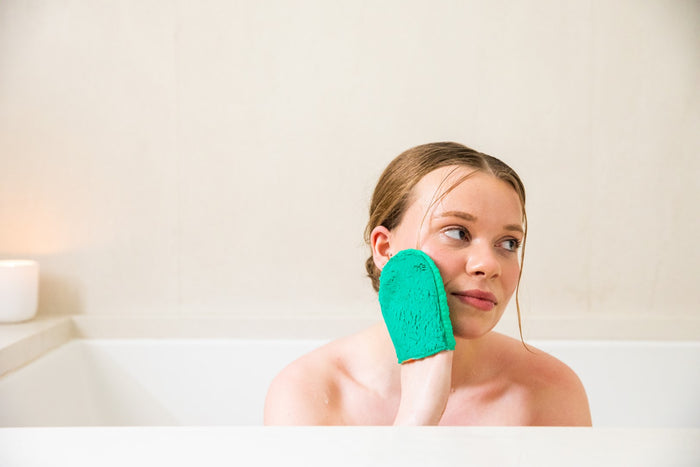

0 comments